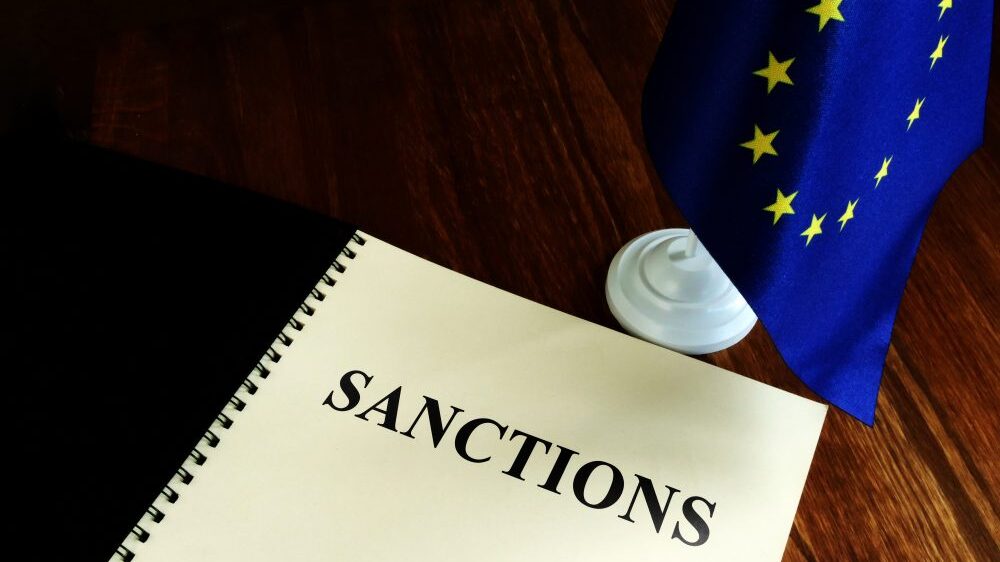
The European Commission is still struggling to get EU member states to sign off on the 11th sanctions package against Russia after being unable to reach a final deal during the meeting with EU ambassadors on Tuesday, May 16th, Politico reported.
In particular, members are divided over imposing penalties on third countries which help Russia circumvent EU sanctions, as well as opposing the permanent shutdown of gas pipelines and maritime measures aimed at stopping the operation of Moscow’s “shadow fleet.”
In order to present a text that’s more likely to reach a consensus, the Commission already revised the proposal, most recently to tone down the envisioned mechanisms to punish third countries who are deemed accessories to Russian sanction evasion.
As we reported earlier, the unusually bold move is being prepared even against global and regional powers such as China, India, Iran, or Turkey—and has already been met with threats from Beijing—for reselling sanctioned goods on the Russian and European markets. But the potential blowback from such measures from some of the world’s most powerful economies makes many EU members uneasy about it.
Therefore, the Commission’s revised version, presented on Tuesday, added that, before going all-in on a third country, “alternative measures should also be considered,” such as sanctioning individual companies or entities, for instance.
This change may not be enough to calm everyone’s nerves, including Germany’s, for example, especially given that Chinese Foreign Minister Qin Gang explicitly “warned” against sanctioning Chinese companies last week, which Beijing would see as a violation of its jurisdiction and “react in necessary ways.”
Another major problem of the package is the proposed inclusion of shutting down Russian gas pipelines permanently. The Commission is waiting for the G7 countries to discuss the issue during the Hiroshima Summit over the weekend. But even if the G7 decides on permanent shutdown, it’s very unlikely the measure would get into the 11th EU sanctions package too.
“There is too much resistance from the countries dependent on the remaining gas,” an unnamed EU diplomat told Politico. “The 11th sanctions package is almost done and inserting this huge measure at this moment is not going to work.”
According to analysts, not only the smaller EU member states which are most dependent on Russian gas could be opposing the move, but Germany and Italy as well, who—even if they don’t import any Russian gas at the moment—are not yet convinced they would give up the right to any future decision on the matter.
However, as Kyiv hopes, a positive decision at the G7 Summit could build pressure within the EU to include the pipeline shutdowns in the next round of sanctions, an eventual 12th package. “The prohibition of pipeline imports of Russia gas can be a good symbolic step,” Ukrainian Energy Minister Galushchenko said. “It could disable one comfortable way for Russia to blackmail the EU and corrupt European politicians.”
Even after Russian oil and gas stopped flowing in most European pipelines right after the invasion, eliminating EU members’ ability to ever reopen them remains a priority for Kyiv. What’s more, President Zelensky even considered sabotaging a line that’s part of Hungary’s critical oil infrastructure, as recent leaks showed, prompting outrage from Budapest and providing part of the reason for blocking half a billion euros worth of military aid meant for Ukraine.
The third problem member states still need time to think about relates to the Commission’s proposed maritime measures to address Moscow’s so-called “shadow fleet” of oil tankers shipping Russian crude around the world under other countries’ flags, which has been on the Commission’s radar for months, as we reported back in February.
According to the draft proposal, the new measures aim to bar “access to the ports and locks of the Union to vessels that are suspected or found in breach of the ban on importing seaborne Russian crude oil and petroleum products into the Union.”
However, some of the member states are unconvinced that such an approach would even work, calling for clarifications in the text. “How are they going to implement it?” an unnamed diplomat told Politico. “Identifying which vessels are involved is also very difficult. There are instances where ships can switch off [their tracking devices]; so you can’t automatically say if they do that, they’re transporting Russian crude.”
The most fervent opponents of the measures are among the Mediterranean nations, such as Greece and Cyprus—which is unsurprising, given that, according to a report by S&P Global, the majority of the vessels with a “potential for risk” for operating within Russia’s shadow fleet are Greek-owned, flying flags from Liberia to Panama.
All of these issues will have to be addressed before the next meeting of the EU ambassadors on Wednesday, May 24th, with the Commission expected to give even more concessions to the countries to finally secure a consensus.
